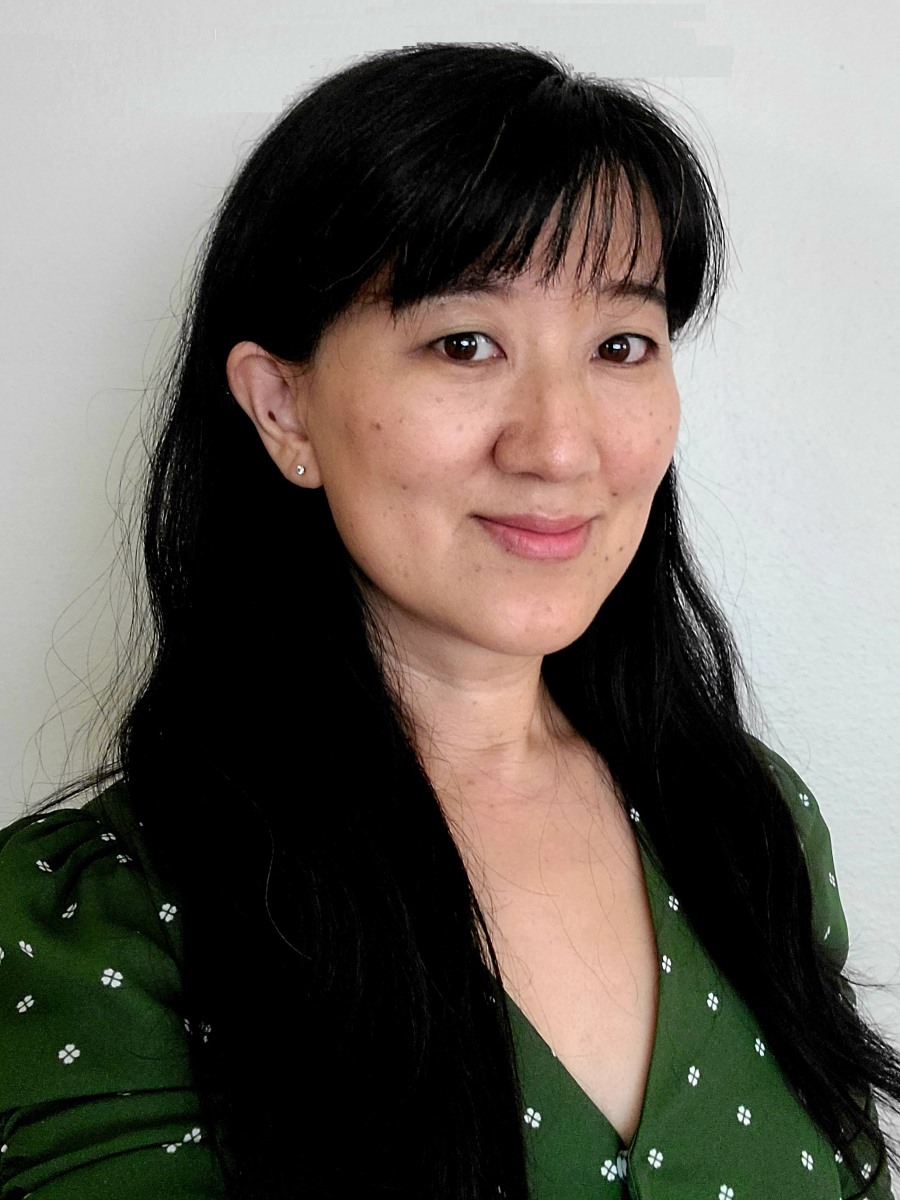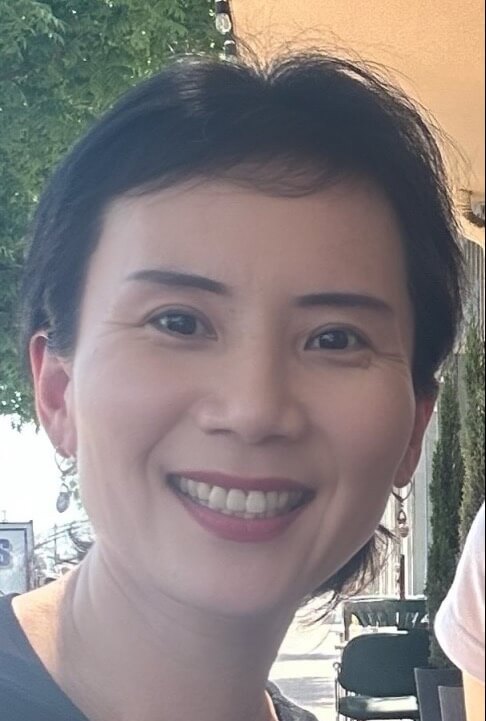Walter G. Klopfer Award
The Walter G. Klopfer Award is bestowed annually by the Society for Personality Assessment for distinguished contribution to the literature in personality assessment. Eligible contributions focus on statistically based research projects. The Journal for Personality Assessment Editor asks all Consulting Editors to nominate outstanding articles from the previous year, each of which is then rated by the Editor and Associate Editors.
Meet the Walter G. Klopfer Award Winner

Walter P. Vispoel is Professor Emeritus within the Department of Psychological and Quantitative Foundations at the University of Iowa. He continues to work on grant-funded research, development of assessment measures, and projects of personal interest. Professor Vispoel is an award-winning instructor and internationally recognized scholar who has published over 100 research articles, focusing most recently on individual differences, measurement theory, and structural equation modeling.
 Hyeryung Lee is an advanced Ph.D. candidate in Educational Measurement and Statistics at the University of Iowa. As a student, Ms. Lee has participated in three separate internships with professional testing companies and won college-wide and American Psychological Association awards for outstanding accomplishments in research. Her two primary research interests focus on using generalizability theory and structural equation modeling techniques to identify and reduce measurement errors in psychological and educational assessments and applying machine learning techniques to spot possible instances of cheating on multiple-choice and mixed format tests.
Hyeryung Lee is an advanced Ph.D. candidate in Educational Measurement and Statistics at the University of Iowa. As a student, Ms. Lee has participated in three separate internships with professional testing companies and won college-wide and American Psychological Association awards for outstanding accomplishments in research. Her two primary research interests focus on using generalizability theory and structural equation modeling techniques to identify and reduce measurement errors in psychological and educational assessments and applying machine learning techniques to spot possible instances of cheating on multiple-choice and mixed format tests.
 Tingting Chen is finishing a second Ph.D. degree in Educational Measurement and Statistics at the University of Iowa (her first doctorate was in Foreign Language and ESL Education). As a student in her current program, she has received both college-wide and American Psychological Association awards for academic excellence. At present, Dr. Chen is involved in various research projects integrating structural equation modeling techniques into generalizability theory analyses. She previously worked as a research scientist at ACT and as an assessment specialist for the Hackensack Meridian School of Medicine.
Tingting Chen is finishing a second Ph.D. degree in Educational Measurement and Statistics at the University of Iowa (her first doctorate was in Foreign Language and ESL Education). As a student in her current program, she has received both college-wide and American Psychological Association awards for academic excellence. At present, Dr. Chen is involved in various research projects integrating structural equation modeling techniques into generalizability theory analyses. She previously worked as a research scientist at ACT and as an assessment specialist for the Hackensack Meridian School of Medicine.
 Hyeri Hong is an Assistant Professor in the Department of Curriculum and Instruction and a core faculty member in the Educational Leadership Doctoral Program at California State University, Fresno. She earned her doctorate in Educational Measurement and Statistics from the University of Iowa under the guidance of Dr. Vispoel. Dr. Hong’s research interests include structural equation modeling, Bayesian statistics, network analysis, generalizability theory, and educational equity. She is active in grant procurement and teaches courses in educational statistics; advanced applied quantitative methods; and educational assessment, evaluation, and planning.
Hyeri Hong is an Assistant Professor in the Department of Curriculum and Instruction and a core faculty member in the Educational Leadership Doctoral Program at California State University, Fresno. She earned her doctorate in Educational Measurement and Statistics from the University of Iowa under the guidance of Dr. Vispoel. Dr. Hong’s research interests include structural equation modeling, Bayesian statistics, network analysis, generalizability theory, and educational equity. She is active in grant procurement and teaches courses in educational statistics; advanced applied quantitative methods; and educational assessment, evaluation, and planning.
View All Previous Winners Below.
The WALTER G. KLOPFER AWARD is bestowed annually for a distinguished contribution to the literature in personality assessment. Eligible contributions focus on statistically based research projects. The Journal of Personality Assessment Editor asks all Consulting Editors to nominate outstanding articles from the previous year, each of which are then rated by the Editor and Associate Editors.
| Year | Recipient(s) | Outstanding Statistically-Based Research Article |
| 2022 | Emorie Beck and Joshua Jackson | Detecting Idiographic Personality Change |
| 2021 | Kate Walton | “Adjectives vs. Statements in Forced Choice and Likert Item Types: Which is More Resistant to Impression Management in Personality Assessment? |
| 2020 | Isabel Thielmann | The HEXACO-100 Across 16 Languages: A Large-Scale Test of Measurement Invariance |
| 2019 | Nicole Cain, Kevin Meehan, Michael Roche, John Clarkin, Dhiara DePanfills | Effortful Control and Interpersonal Behavior in Daily Life |
| 2018 | Tom Schmitt, Daniel Sass, Wayne Chappelle, Bill Thompson | Selecting the "Best" Factor Structure and Moving Measurement Validation Forward: An Illustration |
| 2017 | R. Michael Furr, Anna Hartley | A Profile Based Framework for Factorial Similarity and the Congruence Coefficient |
| 2016 | Anthony Rodriquez, Steven P. Reise, Mark G. Haviland | Applying Bifactor Statisticl Indices in the Evaluation of Psychological Measures |
| 2016 | M. Brent Donnellan, Robert A. Ackerman, Courtney Brecheen | Extending Structural Analyses of the Rosenberg Self-Esteem Scale to Consider Criterion-Related Validity: Can Composite Self-Esteem Scores be Good Enough |
| 2015 | James M. Graham, Marta S. Unterschute | A Reliability Generalization Meta-Analysis of Self-Report Measures of Adult Attachment |
| 2014 | Justin D. Smith, Mark J. Van Ryzin, J. Christopher Fowler, Leonard Handler | Predicting Response to Intensive Multimodal Inpatient Treatment: A Comparison of Single- and Multi-Class Growth Modeling Approaches |
| 2013 | Janine N. Galione, Thomas Oltmanns | Identifying Personality Pathology Associated with Major Depressive Episodes: Incremental Validity of Informant Reports |
| 2012 | Paul D. Trapnell, Delroy L. Paulhus | Agentic and Communal Values: Their Scope and Measurement |
| 2011 | Leslie C. Morey, Han Berghuis, Donna S. Bender, Roel Verheul, Robert F. Krueger, Andrew E. Skodol | Toward a Model for Assessing Level of Personality Functioning in DSM-5, Part II: Empirical Articulation of a Core Dimension of Personality Pathology |
| 2010 | Joshua D. Miller, Jessica Maples,Lauren R. Few, Jennifer Q. Morse,Kirsten E. Yaggi, Paul A. Pilkonis | Using Clinician-Related Five-Factor Model Data to Score the DSM-IV Personality Disorders |
| 2009 | Sandra Horn, Gregory J. Meyer, Joni L. Mihura | Impact of Card Rotation on the Frequency of Rorschach Reflection Responses |
| 2008 | Tam K. Dao, Frances Prevatt, Heather Leveta Horne | Differentiating psychotic patients from nonpsychotic patients with the MMPI-2 and the Rorschach. JPA, 90 |
| 2007 | Richard A. Grucza, Lewis R. Goldberg | The comparative validity of 11 modern personality inventories: predictions of behavioral acts, informant reports, and clinical indicators. JPA, 89 |
| 2006 | Virginia Blankenship, Christopher M. Vega, Erica Ramos, Katherine Romero, Kenneth Warren, Kathleen Keenan, Valery Rosenow, Jennifer Rebarchik, Amanda Sullivan | Using the multifaceted Rasch model to improve the TAT/PSE measure of need for achievement. JPA, 86 |
| 2005 | Nicole M. Dudley, Lynn A. McFarland, Scott A. Goodman, Steven T. Hunt, and Eric J.Sydell | Racial differences in socially desirable responding in selection contexts: Magnitude and consequences. JPA, 85 |
| 2005 | Dawne S. Vogt and C. Randall Colvin | Assessment of accurate self-knowledge. JPA, 84 |
| 2004 | Cato Gronnerod | Rorschach assessment of changes following psychotherapy: A meta-analytic review. JPA, 83 |
| 2003 | Constance J. Jones, Norman Livson and Harvey Peskin | Longitudinal hierarchical linear modeling analyses of California Psychological Inventory data from age 33 to 75: An examination of stability and change in adult personality. JPA, 80 |
| 2002 | Linda S. Grossman, Orest E. Wasyliw, Andrea F. Benn, and Kevin L. Gyoerkoe | Can sex offenders who minimize on the MMPI conceal psychopathology on the Rorschach? JPA, 78 |
| 2001 | Steven R. Smith, Matthew R. Baity, Eric S. Knowles, and Mark J. Hilsenroth | Assessment of disordered thinking in children and adolescents: The Rorschach Perceptual-Thinking Index. JPA, 77 |
| 2000 | Jabbar Hicklin and Thomas A. Widiger | Convergent validity of alternative MMPI-2 personality disorder scales. JPA, 75 |
| 1999 | Gregory Meyer, Mark Bates, and Carl Gacono | The Rorschach Rating Scale: Item adequacy, scale development, and relations with the Big Five Model of personality. JPA, 73 |
| 1998 | Robert F. Bornstein | mplicit and self-attributed dependency needs in dependent and histrionic personality disorders. JPA, 71 |
| 1997 | Gregory J. Meyer and Leonard Handler | The ability of the Rorschach to predict subsequent outcome: A meta-analysis of the Rorschach Prognostic Rating Scale. JPA, 69 |
| 1996 | Gregory J. Meyer | Construct validation of scales derived from the Rorschach method: A review of issues and introduction to the Rorschach Rating Scale. JPA, 67 |
| 1996 | Lewis R. Goldberg, Dennis Sweeney, Peter F. Merenda, and John Edward Hughes, Jr. | The Big-Five factor structure as an integrative framework: An analysis of Clarke's AVA model. JPA, 66 |
| 1995 | Allan H. Frankle | A new method for detecting brain disorder by measuring perseveration in personality responses. JPA, 64 |
| 1994 | Robert F. Bornstein, Stephanie C. Rosser,Eric L. Hill, and Marianne L. Stepanian | Face validity and fakability of objective and projective measures of dependency. JPA, 63 |
| 1993 | Hedy Singer and Virginia Brabender | The use of the Rorschach to differentiate unipolar and bipolar disorders. JPA, 60 |
| 1992 | Joyanna L. Silberg and Judith G. Armstrong | The Rorschach test for predicting suicide among depressed adolescent inpatients. JPA, 59 |
| 1991 | Marvin Acklin, James Bibb, Pam Boyer, and Vijay Jain | Early memories as expressions of relationship paradigms: A preliminary investigation. JPA, 57 |
| 1990 | Jeremy P. Shapiro, Myra Leifer, Mary W. Martone, and Layla Kassem | Multimethod assessment of depression in sexually abused girls. JPA, 55 |
| 1990 | Alfred Heilbrun | Differentiation of death-row murderers and life-sentence murderers by antisociality and intelligence measures. JPA, 54 |
| 1989 | John E. Exner, Jr. | Searching for projection in the Rorschach. JPA, 53 |
| 1988 | David L. Pancoast, Robert P. Archer, and Raymont A. | Gordon The MMPI and clinical diagnosis: A comparison of classification system outcomes with discharge diagnoses. JPA, 52 |
| 1987 | David Lachar, Rex B. Kline, and Charles L. Gdowski | Respondent psychopathology and interpretive accuracy of the Personality Inventory for Children: The evaluation of a "most reasonable" assumption. JPA, 51 |
| 1986 | Richard Farmer and Norman D. Sundberg | Boredom proneness: The development and correlates of a new scale. JPA, 50 |
